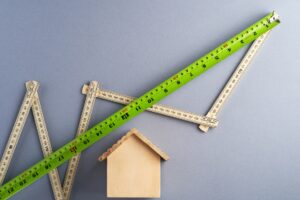The real estate market has always been a popular investment choice, but with shifting economic conditions, evolving work trends, and changing buyer preferences, is 2025 the right time to invest in land or property? Let’s break down the key factors to consider before making your decision.
1. Current Real Estate Market Trends in 2025
As we move deeper into 2025, several trends are shaping the property market:
- Interest Rates & Inflation – With central banks adjusting rates to balance inflation, mortgage costs may fluctuate. Locking in a good rate could be advantageous.
- Urban vs. Suburban Demand – Remote work continues to influence housing preferences, with demand rising for suburban homes and smaller cities.
- Sustainability & Smart Homes – Eco-friendly properties and tech-integrated homes are gaining value as buyers prioritize energy efficiency.
2. Pros of Investing in Property in 2025
✔ Steady Appreciation
Historically, real estate appreciates over time, making it a solid long-term investment. Even if prices dip temporarily, property tends to recover and grow.
✔ Passive Income Potential
Rental demand remains strong, especially in growing cities. Investing in a rental property can provide a steady cash flow.
✔ Hedge Against Inflation
Unlike cash, real estate often keeps pace with (or outperforms) inflation, preserving your purchasing power.
✔ Land as a Future Asset
Buying undeveloped land can be a smart play if you anticipate future development in the area. It requires less maintenance than a house and can yield high returns if the location becomes desirable.
3. Cons & Risks to Consider
✖ High Initial Costs & Liquidity Issues
Real estate requires significant upfront capital, and selling property isn’t as quick as selling stocks. If you need fast cash, this could be a drawback.
✖ Market Volatility
While generally stable, real estate can be affected by economic downturns, interest rate hikes, or local market crashes.
✖ Maintenance & Hidden Costs
Owning property comes with expenses like taxes, repairs, and insurance. Vacant land may have lower costs but can still incur zoning or permitting fees.
4. Should You Buy Land or a Built Property?
| Factor | Land | Built Property |
|---|---|---|
| Appreciation | High potential if in a growing area | Steady, influenced by market |
| Maintenance | Low (but may have zoning issues) | High (repairs, taxes, upkeep) |
| Income | None unless leased/sold | Rental income possible |
| Liquidity | Harder to sell quickly | Easier to sell if in demand |
Best For:
- Land Investors – Those with long-term vision who can wait for development.
- Property Investors – Buyers looking for rental income or flipping opportunities.
5. Key Questions Before Investing
- What’s the local market forecast? Research growth areas and job markets.
- Can you afford the long-term costs? Factor in taxes, insurance, and upkeep.
- What’s your exit strategy? Are you holding, renting, or flipping?
Final Verdict: Is 2025 a Good Year to Invest?
✅ Yes, if…
- You find undervalued properties in growing locations.
- You secure a favorable mortgage rate.
- You’re in it for the long term.
❌ No, if…
- You expect a quick return with high liquidity.
- The local market is declining or overpriced.
- You’re not prepared for unexpected costs.
Bottom Line
Real estate remains one of the most reliable investments, but success depends on timing, location, and financial readiness. If you do your research and choose wisely, 2025 could be a great year to invest in land or property.
What’s your take? Are you considering real estate in 2025? Share your thoughts in the comments!




